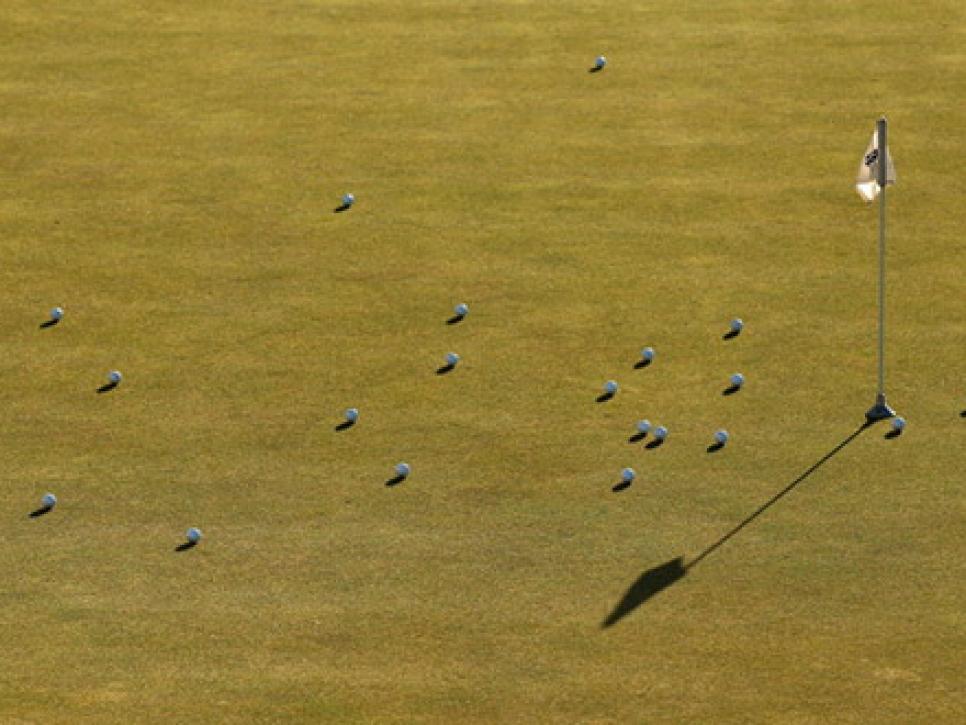News
Five golf-ball companies named in Acushnet suit deny patent-infringement claims
It's been nearly two months since Acushnet, the leading golf-ball manufacturer in the U.S. and the parent company of the Titleist brand, filed a lawsuit in Massachusetts accusing 10 small companies of selling golf balls that infringe on several of the company's patents.
And it's just starting to get interesting.
While two of the companies recently announced their decisions to step away from the golf-ball business, five others have responded to the Acushnet complaint with a categorical denial of any patent infringement by their golf balls. All of the companies named in the lawsuit are small operations with limited sales that are often marketed only through direct-to-consumer campaigns on company websites. The vast majority of balls named in the lawsuit are three-piece, cast urethane golf balls offered at a much cheaper price than balls of a similar construction.
Within the last two weeks, both 3Up Golf and Lightning Golf have cleared out inventory of their golf balls that were cited in the Acushnet lawsuit. 3Up's founder Rob Zimmerman sent a letter to customers stating: "It's with sadness that I'm writing you today to announce the end of sale date for the 2S14, and that the 3F12 is officially sold out. Unfortunately, we can't discuss the circumstances which bring us to this stage. We've had to make a very tough business decision over the last week and as such, will be winding down our golf ball business."
In an email to Golf Digest, Zimmerman also declined to discuss the details of a settlement with Acushnet, but did note, "This certainly has been one hell of a painful learning experience."

Jay Costa, who founded Lightning Golf last fall, also appears to be stepping away from the golf-ball business. In a phone call last week, he said, "I don't know what they were going to get from me, but I do know that it wasn't worth the trouble." Costa didn't say he was out of the golf-ball business forever. "I might find a different manufacturer to work with," he said.
While Germany-based Vice has a few more weeks to file its response to the complaint, the five companies who filed their documents May 29 (Dixon, Rife, Monsta, KickX and Vail Roberts for INeedtheBall.com) didn't seem interested in walking away or closing up shop. Each is represented by Adam Kessel, a lawyer with the nationally regarded intellectual-property law firm Fish and Richardson. Each response was similar in wording, including a denial of "each and every allegation," as well as a denial "that Acushnet is entitled to the relief requested or any other relief."
In response to the specific claims in the Acushnet suit, most companies are keeping their cards close to the vest, using similar language repeatedly throughout their responses: "[Company name] does not possess sufficient information to admit or deny the of allegations of [numbered paragraph], and on that basis denies."
Contacted by email, Kessel declined to elaborate but offered this rebuttal: "Each company denies Acushnet's allegations and intends to vigorously defend itself in the case."
However, Bob Koch, founder and president of Kick X Sports, did speak out in a press release announcing the company's denial of Acushnet's allegations. "Titleist is a dominant brand in our business, but by suing upstart companies like Kick X, it is creating an environment where innovation and competition is not welcome in golf," Koch said. "We do not believe Acushnet will prevail in this matter. Therefore, we have no choice but to stand behind our proprietary ball technology and fight back. While this saddens me, Kick X is growing quickly and we have been recognized as one of the companies to watch. Clearly the prospect of having a new kid on the green is causing trepidation, so instead of working together to make the game of golf better, we are forced to focus our resources on fighting in court."
Filed April 6 in the U.S. District Court of Massachusetts in Boston, the Acushnet lawsuit named 17 different balls from 10 different companies. Among the companies listed are Rife (V-Motion), I Need the Ball (The Ball), Vice Golf (Pro) and Kick X (Tour-Z). According to the lawsuit, the dimple patterns on these balls are all the same: 318 dimples arranged in what the lawsuit terms "a triangluar dipyramid shape."
Golf Digest has learned that the balls named in the lawsuit were all produced by Foremost, a Taiwan-based manufacturer that is not specifically named in the lawsuit. Foremost's website states that it is the largest golf ball manufacturer in Taiwan, producing 10 million balls monthly.
Foremost officials have declined to comment on the lawsuit.
Contacted by Golf Digest, Acushnet officials also have declined to comment.